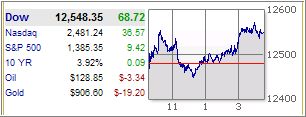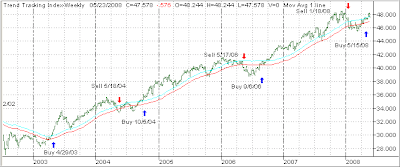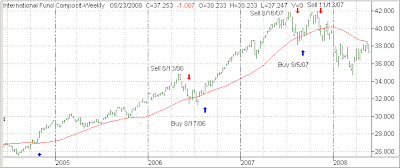 Recently, I had an interesting conversation with a college graduate who was my doubles partner in a tennis match. He elaborated on how he’s been staying in touch with many of his fellow students and friends despite many having moved to far away places. Using email and social sites such as facebook.com make it a snap to keep personal connections going over indefinite periods of time.
Recently, I had an interesting conversation with a college graduate who was my doubles partner in a tennis match. He elaborated on how he’s been staying in touch with many of his fellow students and friends despite many having moved to far away places. Using email and social sites such as facebook.com make it a snap to keep personal connections going over indefinite periods of time.
This made me reflect back on my own graduation in 1973 (University of Kiel, Germany), when I was the only one to move out of the local area and on to the United States. Sure, for a while I kept in touch via snail mail (the only option) and infrequent visits during trips to Europe. Of course, over time these contact attempts faded so that after some 35 years of absence, I am pretty much out of touch and out of the picture.
I marvel at the fact how easy it is nowadays to stay connected which, if you are consistent, may pay some handsome dividends.
Al Thomas, author of the best selling book, “If It Doesn’t Go Up, Don’t Buy It!” had this story in last week’s newsletter, which makes some good points, that not only college graduates should be aware of and apply:
Every week I write something about the stock market – how to, when to and where to put your money and how to protect it from loss if you do. This week I want to say something very important
to the young folks about success. And you parents take note if your kids are still young.
One of these days you are going to graduate from high school and, hopefully, college. Either one fits the bill here – even if you don’t graduate you can apply this idea.
A small percentage of your peers are going to become very successful. Success in the U.S. is mostly defined as someone who makes a lot of money.
From your graduating class there will be 2 or 3 who make it big time and 6 or 8 who will do very well. Most of them will end up owning their own businesses. Upon graduation you will have no idea who will be the next Bill Gates, Jack Welch or Warren Buffett, but he is right there in your old class picture.
Just when you need him you have lost contact for so many years that he probably won’t remember you or want to help you.
People are assets. You can’t run any business without their input whether it is muscle, brains or money. You use them and they use you – and there is nothing wrong with that. This interaction is what makes the business world go around.
Wouldn’t it have been great if you had kept in contact with Bill Gates from the time you graduated? As he made strides with his company you might have become one of his key people, but he forgot you existed – and it wasn’t his fault. You let him go.
Don’t squander your assets, your people. Here is a method that will work. No, not right away, but over the years it could easily change your life.
When you graduate take your yearbook and have everyone sign it. Even those you hardly know at all. Get their addresses, phone numbers and emails. Every year on that graduation date send out a yearly update on what you have done during that year – got married, changed jobs, had a promotion, where you went on vacation, added a new kid to the family or what happened to your dog and your dreams and aspirations if you want to. Personal stuff. Ask them how they are doing? Every one is important.
Do this every year and do your best to keep the list current. You may want to add others to your list.
Not much will be going on during the first 10 years, but as certain of your old classmates start to move up the ladder they will be looking for people to help them and you will float up to the top of the list. Mr. Rising Star needs help and he knows where you are and all about what you have been doing.
You might be just the one he needs to help launch his ship of state.
People are assets. This kind of investment can really pay off.
Throughout anybody’s working life of some 40 years, there are bound to be many job changes and maybe even moves into totally different careers.
To keep in touch, as Al Thomas points out in his above article, is the smart thing to do since that type of networking should be a lifelong endeavor; not just for the potential business opportunities but also for the personal, meaningful friendships that may develop, which are always an asset that can’t be counted in dollars and cents.
 Uncertainty was the word of the day on Tuesday as the markets see-sawed (see chart from Marketwatch.com). However, after the drubbing of last week, momentum picked up late in the session supported by a drop in oil prices and an unexpected gain in new home sales.
Uncertainty was the word of the day on Tuesday as the markets see-sawed (see chart from Marketwatch.com). However, after the drubbing of last week, momentum picked up late in the session supported by a drop in oil prices and an unexpected gain in new home sales.





